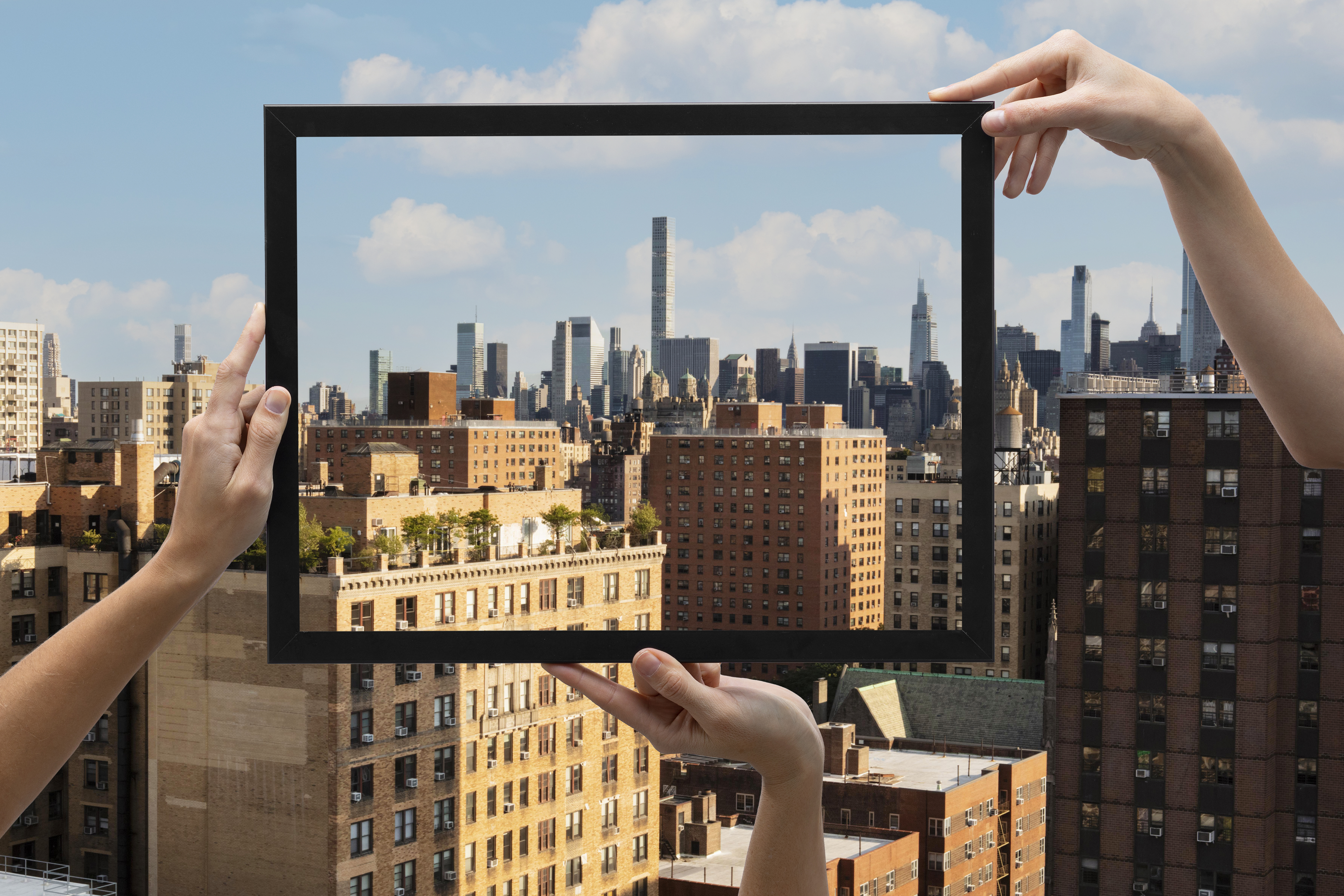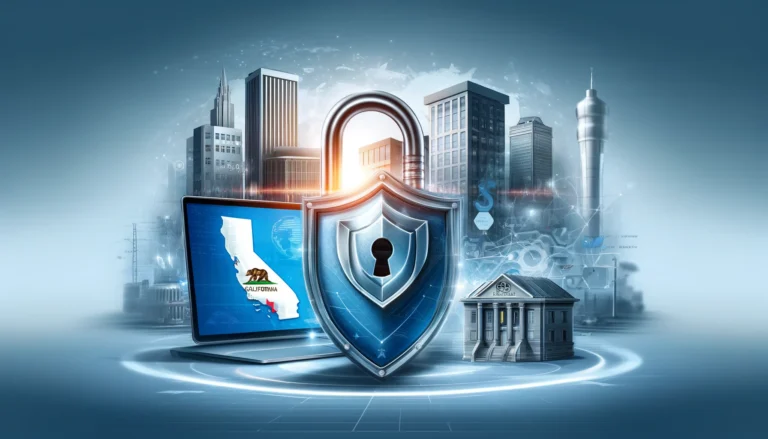Introduction
Definition and Overview
In the rapidly evolving digital landscape, two concepts are emerging as transformative forces: smart contracts and virtual real estate. Smart contracts are self-executing contracts with the terms of the agreement directly written into code. They operate on blockchain technology, which ensures transparency, security, and immutability. Unlike traditional contracts, which require intermediaries such as lawyers or banks to enforce terms, smart contracts automatically execute actions when predetermined conditions are met, significantly reducing the need for middlemen and associated costs.
Virtual real estate, on the other hand, refers to digital properties that exist within virtual worlds or online platforms. These can include parcels of land, buildings, and other forms of property that can be bought, sold, and developed just like physical real estate. Virtual real estate is an integral part of the burgeoning metaverse—a collective virtual shared space, created by the convergence of virtually enhanced physical reality and physically persistent virtual spaces, including augmented reality (AR) and virtual reality (VR).
Importance and Relevance
The significance of smart contracts and virtual real estate extends beyond their novelty. Smart contracts are revolutionizing the way agreements are made and executed across various sectors, from finance and supply chain management to healthcare and insurance. Their ability to automate processes, reduce fraud, and increase efficiency holds immense potential for creating more streamlined and transparent operations in virtually any industry.
Virtual real estate, meanwhile, is becoming a key asset in the digital economy. As people spend more time online and virtual worlds become more sophisticated, the value and utility of virtual properties are increasing. These digital spaces offer new opportunities for social interaction, entertainment, business, and investment, mirroring and sometimes surpassing their physical counterparts. The concept of owning, developing, and monetizing virtual land is not just a futuristic idea but a present reality that is gaining traction among tech enthusiasts, investors, and mainstream users alike.
Purpose of the Guide
This guide aims to provide a comprehensive understanding of smart contracts and virtual real estate, exploring their definitions, functionalities, benefits, and challenges. Readers will learn how these technologies work, their applications, and the implications they have for various industries and everyday life. By delving into the intersection of smart contracts and virtual real estate, the guide will also highlight how these two concepts are converging to create new paradigms in property ownership, business transactions, and digital interactions.
Importance of Understanding These Concepts for Future Technology Trends
As we stand on the brink of a new digital era, understanding smart contracts and virtual real estate is crucial for staying ahead of technological trends. These concepts are not isolated phenomena but part of a broader shift towards a decentralized, digital-first world. Blockchain technology, the foundation of smart contracts, is driving innovations in data security, transparency, and decentralized finance (DeFi). Meanwhile, the rise of virtual real estate is intertwined with the development of the metaverse, a rapidly growing ecosystem that promises to redefine how we interact, work, and play.
Grasping these concepts will equip individuals and businesses with the knowledge needed to navigate and leverage new opportunities in the digital economy. Whether you are a developer, investor, entrepreneur, or simply a curious observer, understanding the intricacies of smart contracts and virtual real estate will provide valuable insights into the future of technology and its impact on society.
Understanding Smart Contracts
What Are Smart Contracts?
Smart contracts are self-executing agreements with the terms and conditions directly written into lines of code. These contracts automatically enforce and execute the agreed-upon terms when specific conditions are met, eliminating the need for intermediaries. The concept was first proposed by cryptographer Nick Szabo in 1994, but it gained widespread attention and practical application with the advent of blockchain technology, particularly with the launch of Ethereum in 2015.
Unlike traditional contracts, which are typically written in legal language and require third-party enforcement (e.g., lawyers, notaries, or courts), smart contracts are digital and operate on decentralized blockchain networks. This digital nature ensures that once a smart contract is deployed on the blockchain, it cannot be altered, thereby providing a high level of trust and security.
How Smart Contracts Work
Smart contracts are built on blockchain technology, which is a decentralized and distributed ledger system. Here’s a breakdown of how they work:
- Code and Logic: The terms of the smart contract are coded into a script using a programming language such as Solidity (for Ethereum). This code specifies the conditions under which the contract will execute.
- Blockchain Integration: The smart contract is deployed onto a blockchain network. The most popular platform for smart contracts is Ethereum, but others like Binance Smart Chain, Cardano, and Polkadot also support them.
- Cryptographic Security: Smart contracts use cryptographic keys to ensure security and integrity. Each participant in the contract has a unique public and private key, ensuring that only authorized actions are executed.
- Decentralized Execution: Once deployed, the contract operates in a decentralized manner. This means that no single entity controls the contract, and its execution is validated by the consensus mechanism of the blockchain network (e.g., proof of work or proof of stake).
Advantages of Smart Contracts
Smart contracts offer several key advantages over traditional contracts:
- Efficiency and Speed: Automated execution reduces the time needed to complete transactions and processes, as there is no need for manual intervention.
- Transparency and Trust: All parties involved can see the contract’s terms and track its execution on the blockchain, enhancing trust and reducing the risk of disputes.
- Security and Immutability: Once written to the blockchain, the contract cannot be altered or tampered with, providing a high level of security against fraud and unauthorized changes.
- Cost Reduction: By eliminating intermediaries, smart contracts reduce the costs associated with legal fees, notary services, and other traditional contract execution expenses.
Limitations and Challenges
Despite their advantages, smart contracts also face several limitations and challenges:
- Technical Complexity: Writing and deploying smart contracts require specialized programming knowledge and expertise in blockchain technology.
- Legal and Regulatory Issues: The legal status of smart contracts varies by jurisdiction, and there is ongoing debate about their enforceability under existing legal frameworks.
- Bugs and Vulnerabilities: Since smart contracts are software, they can contain bugs or vulnerabilities that can be exploited, leading to potential losses. Auditing and rigorous testing are crucial but not foolproof.
- Scalability: Blockchain networks, especially public ones like Ethereum, face scalability issues that can affect the performance and cost of executing smart contracts.
Virtual Real Estate
What Is Virtual Real Estate?
Virtual real estate refers to parcels of land, buildings, and other properties that exist in a digital environment. These digital spaces are part of virtual worlds or metaverses, which are immersive, interactive, and often decentralized platforms where users can interact, create, and transact. Unlike physical real estate, virtual real estate exists solely in a digital format, but it shares many characteristics with its physical counterpart, such as ownership, development potential, and investment value.
Virtual real estate can be bought, sold, rented, and developed, and its value can appreciate over time, much like physical property. The concept has gained significant traction with the rise of blockchain technology, which provides a secure and transparent way to manage ownership and transactions in these digital spaces.
Platforms and Marketplaces
Several platforms and marketplaces facilitate the buying, selling, and development of virtual real estate. Some of the most popular platforms include:
- Decentraland: A decentralized virtual world where users can buy, sell, and build on virtual land parcels using the platform’s native cryptocurrency, MANA. Decentraland is entirely user-owned, allowing for a high degree of creativity and customization.
- The Sandbox: Another decentralized virtual world, The Sandbox allows users to create, own, and monetize virtual experiences using its native token, SAND. It offers a robust toolkit for building and customizing virtual properties.
- Cryptovoxels: A user-owned virtual world where users can purchase land parcels and build structures using a simple, voxel-based construction system. Cryptovoxels emphasizes community and social interaction.
- Somnium Space: A VR-based platform that offers immersive experiences and detailed land development options. Users can buy land and create extensive virtual environments.
These platforms often use blockchain technology to ensure secure and transparent transactions, and they support the creation and trade of non-fungible tokens (NFTs), which represent ownership of virtual real estate and other digital assets.
Types of Virtual Real Estate
Virtual real estate encompasses various forms of digital properties, including:
- Land Parcels: Individual units of virtual land that can be purchased and developed. These parcels vary in size, location, and value, often mirroring the dynamics of physical real estate markets.
- Virtual Buildings and Spaces: Structures and environments built on virtual land parcels. These can include houses, offices, stores, entertainment venues, and more. The design and function of these buildings are limited only by the creator’s imagination and the platform’s capabilities.
Uses and Applications
Virtual real estate offers diverse uses and applications, making it a versatile and valuable digital asset. Some key uses include:
- Social and Entertainment: Virtual worlds provide spaces for social interaction, gaming, and entertainment. Users can host events, create interactive experiences, and build communities in these digital environments.
- Commercial Uses: Businesses can set up virtual stores, showrooms, and offices to reach a global audience. Virtual real estate is also used for advertising, with companies purchasing digital billboards and other promotional spaces.
- Investment Opportunities: Like physical real estate, virtual real estate can be a lucrative investment. Investors can buy and hold virtual properties, develop them to increase their value, or rent them out for passive income.
Investment Opportunities
Virtual real estate is becoming an attractive investment opportunity for individuals and institutions. As demand for digital spaces grows, so does the potential for appreciation in value. Investors can buy virtual land, develop it with valuable content or infrastructure, and sell or lease it for profit. The decentralized nature of many virtual real estate platforms also allows for fractional ownership and crowdfunding, broadening access to investment opportunities.
Intersection of Smart Contracts and Virtual Real Estate
Role of Smart Contracts in Virtual Real Estate
Smart contracts play a pivotal role in the virtual real estate market by automating and securing transactions, ensuring transparency, and reducing the need for intermediaries. Here’s how smart contracts are integrated into virtual real estate:
- Automating Transactions and Ownership Transfers: Smart contracts facilitate the buying and selling of virtual properties by automatically executing the terms of the sale once the agreed conditions are met. This includes the transfer of ownership rights recorded on the blockchain, which ensures a secure and tamper-proof transaction history.
- Implementing Leasing and Renting Agreements: Smart contracts can automate lease agreements for virtual properties. They can handle rent payments, enforce terms, and even manage subleasing, all without requiring manual intervention. This streamlines property management and ensures compliance with agreed terms.
Benefits of Using Smart Contracts in Virtual Real Estate
The integration of smart contracts into virtual real estate offers several significant benefits:
- Increased Security and Trust: The decentralized and immutable nature of blockchain ensures that all transactions are secure and transparent. Smart contracts automatically enforce terms, reducing the risk of fraud and enhancing trust among participants.
- Reduction of Intermediaries and Transaction Costs: By automating transactions and contract enforcement, smart contracts eliminate the need for intermediaries such as brokers, lawyers, and notaries. This reduces transaction costs and speeds up the process of buying, selling, and leasing virtual properties.
- Transparency and Traceability: All transactions and ownership records are stored on the blockchain, providing a transparent and easily traceable history of property ownership and transactions. This transparency helps prevent disputes and simplifies due diligence processes.
- Efficiency and Automation: Smart contracts streamline the process of managing virtual real estate by automating tasks such as rent collection, property maintenance agreements, and compliance checks. This increases efficiency and allows property owners to focus on value-added activities.
Examples and Case Studies
Several real-world examples and case studies highlight the successful integration of smart contracts in the virtual real estate market:
- Decentraland: Decentraland is one of the most prominent examples where smart contracts are used to manage the sale and transfer of virtual land parcels. Users purchase land using the platform’s native cryptocurrency, MANA, and smart contracts handle the ownership transfer seamlessly.
- The Sandbox: In The Sandbox, smart contracts are employed to facilitate land sales and ownership transfers. Additionally, smart contracts govern the creation and distribution of digital assets and experiences within the platform, ensuring creators receive fair compensation.
- Cryptovoxels: Cryptovoxels leverages smart contracts to manage property sales and rentals. The platform’s decentralized nature ensures that all transactions are transparent and secure, enhancing trust among users.
- Somnium Space: Somnium Space uses smart contracts to handle real estate transactions, property development, and leasing agreements. The platform’s VR-based environment provides immersive experiences, and smart contracts ensure that all transactions are efficiently managed and recorded.
These examples demonstrate how smart contracts can revolutionize the virtual real estate market by providing secure, efficient, and transparent mechanisms for managing digital properties.
Legal and Regulatory Considerations
Current Legal Landscape
The legal status and regulatory framework surrounding smart contracts and virtual real estate are still evolving. Different jurisdictions have varying approaches to these emerging technologies, leading to a patchwork of regulations:
- Jurisdictional Differences: Some countries, such as Malta and Switzerland, have enacted comprehensive regulations to encourage the use of blockchain and smart contracts. Others, like the United States, have a more fragmented approach, with state-level regulations varying significantly.
- Recognition of Smart Contracts: In some jurisdictions, smart contracts are recognized as legally binding agreements. For instance, the state of Arizona in the United States has passed laws explicitly recognizing smart contracts as enforceable under state law. However, many regions have yet to establish clear legal frameworks, leading to uncertainty.
- Virtual Real Estate Regulations: Virtual real estate is a relatively new concept, and most jurisdictions do not have specific regulations governing its use and ownership. However, the sale of virtual real estate might fall under existing laws governing digital assets and e-commerce, depending on the jurisdiction.
Future of Regulation
The regulatory landscape for smart contracts and virtual real estate is expected to evolve as these technologies become more mainstream. Key trends and potential developments include:
- Increased Regulatory Clarity: Governments and regulatory bodies are likely to develop more comprehensive and clear regulations as they gain a better understanding of smart contracts and virtual real estate. This will help reduce uncertainty and promote broader adoption.
- Global Regulatory Frameworks: There may be efforts to create international regulatory standards to address the cross-border nature of blockchain technology and virtual real estate. This could facilitate smoother transactions and cooperation between different jurisdictions.
- Focus on Consumer Protection: As the market for virtual real estate grows, regulators may introduce measures to protect consumers from fraud and ensure fair practices. This could include requirements for disclosure, transparency, and the protection of personal data.
Challenges in Creating a Global Regulatory Framework
Creating a global regulatory framework for smart contracts and virtual real estate presents several challenges:
- Technological Complexity: Regulators need to understand the technical aspects of blockchain and smart contracts to create effective regulations. This requires significant expertise and collaboration with industry stakeholders.
- Diverse Legal Systems: Different countries have varying legal systems and approaches to property rights, contracts, and digital assets. Harmonizing these differences to create a unified regulatory framework is a complex task.
- Balancing Innovation and Regulation: Regulators must strike a balance between fostering innovation and ensuring that consumers and investors are protected. Overly restrictive regulations could stifle innovation, while a lack of regulation could lead to fraud and abuse.
Best Practices for Compliance
To navigate the evolving regulatory landscape, individuals and businesses involved in smart contracts and virtual real estate should adopt best practices for compliance:
- Stay Informed: Regularly monitor regulatory developments and stay informed about changes in the legal landscape. This can be achieved through legal advisories, industry associations, and participation in relevant forums and discussions.
- Engage with Legal Experts: Work with legal experts who specialize in blockchain and digital assets to ensure that your activities comply with current laws and regulations. Legal advisors can provide guidance on structuring transactions, drafting contracts, and managing risks.
- Implement Robust Security Measures: Ensure that your smart contracts and virtual real estate platforms have strong security measures to protect against fraud, hacking, and other vulnerabilities. Regular security audits and updates are essential.
- Transparent Practices: Maintain transparency in your transactions and operations. Clearly disclose terms and conditions, risks, and other relevant information to users and stakeholders.
Importance of Staying Informed About Legal Changes
As the legal and regulatory environment continues to evolve, staying informed is crucial for anyone involved in smart contracts and virtual real estate. This helps ensure compliance, mitigate risks, and take advantage of new opportunities. Regularly updating your knowledge and practices in response to legal changes will position you to succeed in this dynamic and rapidly growing field.
Challenges and Future Trends
Technical Challenges
Despite their transformative potential, smart contracts and virtual real estate face several technical challenges that must be addressed to realize their full capabilities:
- Scalability Issues: Blockchain networks, particularly those supporting smart contracts like Ethereum, often struggle with scalability. High transaction volumes can lead to network congestion, slow processing times, and increased transaction fees. Solutions such as layer-2 scaling, sharding, and alternative consensus mechanisms are being explored to address these issues.
- Interoperability: Different blockchain platforms often operate in silos, making it difficult for smart contracts and digital assets to interact across multiple networks. Interoperability solutions, such as cross-chain bridges and standardized protocols, are necessary to enable seamless interaction and integration between various blockchain ecosystems.
- User Experience: The complexity of blockchain technology and smart contracts can be a barrier to mainstream adoption. Improving user interfaces, simplifying the process of creating and interacting with smart contracts, and providing better educational resources are essential for attracting a broader user base.
- Security and Reliability: Smart contracts are susceptible to bugs and vulnerabilities that can be exploited by malicious actors. Ensuring the security and reliability of smart contracts requires rigorous testing, auditing, and the development of formal verification methods to detect and prevent potential issues.
Market Challenges
The market for smart contracts and virtual real estate also faces several challenges that impact their growth and adoption:
- Volatility and Speculation: The value of cryptocurrencies and digital assets, including virtual real estate, can be highly volatile. This volatility can create uncertainty and risk for investors, developers, and users. Managing this volatility through stablecoins, diversified portfolios, and other financial instruments is crucial for long-term stability.
- Public Perception and Adoption: While interest in blockchain technology and virtual real estate is growing, widespread adoption is still limited. Public perception, often influenced by media coverage of scams and market crashes, can hinder broader acceptance. Increasing awareness, education, and demonstrating real-world use cases are vital for changing perceptions and encouraging adoption.
- Regulatory Uncertainty: As discussed in the previous section, the evolving regulatory landscape creates uncertainty for participants in the smart contract and virtual real estate markets. Clear and supportive regulations are needed to provide confidence and clarity for investors, developers, and users.
Future Trends
Looking ahead, several trends are likely to shape the future of smart contracts and virtual real estate:
- Integration with Other Technologies: The convergence of blockchain with other emerging technologies, such as artificial intelligence (AI), virtual reality (VR), and augmented reality (AR), will create new opportunities and use cases. For example, AI can enhance the automation and intelligence of smart contracts, while VR and AR can create more immersive and interactive virtual real estate experiences.
- Growth of the Virtual Economy: As virtual worlds and metaverses continue to develop, the virtual economy will expand, encompassing a wide range of activities, including commerce, entertainment, education, and social interaction. Virtual real estate will play a central role in this economy, providing the infrastructure for digital businesses and communities.
- Decentralized Finance (DeFi) Integration: The integration of smart contracts with decentralized finance (DeFi) protocols will enable new financial services and products within virtual worlds. This includes lending, borrowing, staking, and yield farming, all facilitated by smart contracts and secured by blockchain technology.
- Sustainable and Eco-Friendly Solutions: As concerns about the environmental impact of blockchain grow, there will be a push towards more sustainable and eco-friendly solutions. This includes developing energy-efficient consensus mechanisms, such as proof of stake (PoS), and exploring the use of renewable energy sources for blockchain operations.
Conclusion
Recap of Key Points
In this comprehensive guide, we have explored the dynamic and evolving fields of smart contracts and virtual real estate. We began by defining smart contracts as self-executing agreements with the terms directly written into code, operating on blockchain technology to ensure security, transparency, and efficiency. We also defined virtual real estate as digital properties within virtual worlds, highlighting their parallels to physical real estate and their growing importance in the digital economy.
We delved into the workings of smart contracts, their benefits, and the challenges they face. Smart contracts offer numerous advantages, such as increased efficiency, reduced costs, enhanced security, and transparency, but they also come with technical complexities and regulatory uncertainties.
In the realm of virtual real estate, we discussed various platforms and marketplaces like Decentraland, The Sandbox, Cryptovoxels, and Somnium Space, each offering unique opportunities for owning, developing, and monetizing digital properties. We examined the types of virtual real estate, their uses in social, commercial, and investment contexts, and the significant role they play in the expanding virtual economy.
The intersection of smart contracts and virtual real estate was another focal point, illustrating how smart contracts automate transactions, enhance security, and reduce costs in digital property management. We provided examples and case studies demonstrating the practical application of these technologies in virtual worlds.
We also addressed the legal and regulatory considerations, emphasizing the current landscape, future trends, and best practices for compliance. Understanding the evolving regulatory environment is crucial for navigating the complexities and mitigating risks associated with these technologies.
Finally, we discussed the challenges and future trends, including technical hurdles like scalability and interoperability, market challenges such as volatility and public perception, and emerging trends like the integration of blockchain with AI, VR/AR, and DeFi, and the push towards sustainable solutions.
Importance of Staying Informed
As smart contracts and virtual real estate continue to evolve, staying informed about the latest developments, technological advancements, and regulatory changes is essential. The pace of innovation in these fields is rapid, and new opportunities and challenges emerge regularly. Keeping abreast of these changes will enable you to make informed decisions, capitalize on emerging trends, and navigate the complexities of the digital landscape.
Final Thoughts
The convergence of smart contracts and virtual real estate represents a significant shift in how we interact with digital assets and conduct transactions. These technologies are not only reshaping industries but also creating new paradigms for ownership, commerce, and social interaction in the digital realm. As we move further into the digital age, the potential for smart contracts and virtual real estate to transform our world is immense. By understanding and embracing these technologies, we can unlock new possibilities and drive innovation in various sectors.
Resources and Further Reading
To deepen your understanding of smart contracts and virtual real estate, consider exploring the following resources:
- Books and Articles: Look for literature on blockchain technology, smart contracts, and virtual real estate to gain more in-depth knowledge. Some recommended books include “Mastering Blockchain” by Imran Bashir and “Blockchain Revolution” by Don and Alex Tapscott.
- Online Courses and Tutorials: Platforms like Coursera, Udemy, and edX offer courses on blockchain, smart contracts, and virtual real estate. These courses provide practical learning and hands-on experience.
- Community and Forums: Join online communities and forums such as Reddit’s r/blockchain and r/virtualrealestate, as well as specialized groups on platforms like Telegram and Discord. These communities are valuable for networking, staying updated on trends, and sharing knowledge and experiences.





